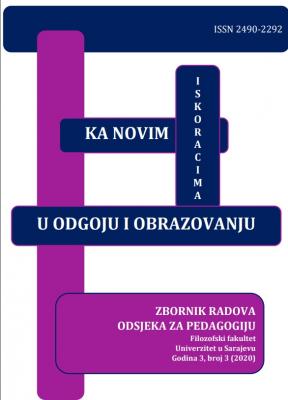SUBJEKTIVNA SOCIJALNA ISKLJUČENOST STUDENATA I RIZIČNIH SKUPINA MLADIH
SUBJECTIVE SOCIAL EXCLUSION OF STUDENTS AND YOUTH AT RISK
Author(s): Lejla OsmićSubject(s): State/Government and Education, Personality Psychology, Family and social welfare, Inclusive Education / Inclusion, Sociology of Education, Pedagogy
Published by: Filozofski fakultet Univerziteta u Sarajevu
Keywords: subjective social exclusion; youth at risk; students;
Summary/Abstract: Social exclusion is a phenomenon that transcends the boundaries of poverty, marginalization, discrimination and is reflected in the severance of social relations between the individual and society, but also the disruption of overall social cohesion. Given its implications at the individual and collective level, it is necessary to address both the measurement of social exclusion in its dimensions (education, employment, health and poverty) and the indicators related to the self-perception of social well-being. This implies the experience of one's own social status in which a person feels excluded and deprived regardless of objective factors. The paper discusses the self - perception of social exclusion of students and youth at risk. The research results showed that there is a statistically significant difference in the subjective social exclusion of students and youth at risk, with the second group feeling more socially excluded. When it comes to differences in the level of the scale items of subjective social exclusion between students and youth at risk, a statistically significant difference was obtained on items related to meeting of the needs (the need to belong, the need for self-respect): students had higher scores at these items. However, there is no statistically significant difference in the answers, which refer to the anticipation of employment, optimistic future and the role of educational programs and the necessary competencies for work in the profession. These results lead to the conclusion that the role of education in the prevention and suppression of social exclusion and its perception is reflected in the support that an individual has during schooling in the context of social rights, both through formal social support mechanisms given to students and through informal support of society during education process. However, the limited role of education is perceived in anticipating the future.
Journal: Zbornik radova Odsjeka za pedagogiju
- Issue Year: 3/2020
- Issue No: 3
- Page Range: 8-20
- Page Count: 13
- Language: Bosnian

